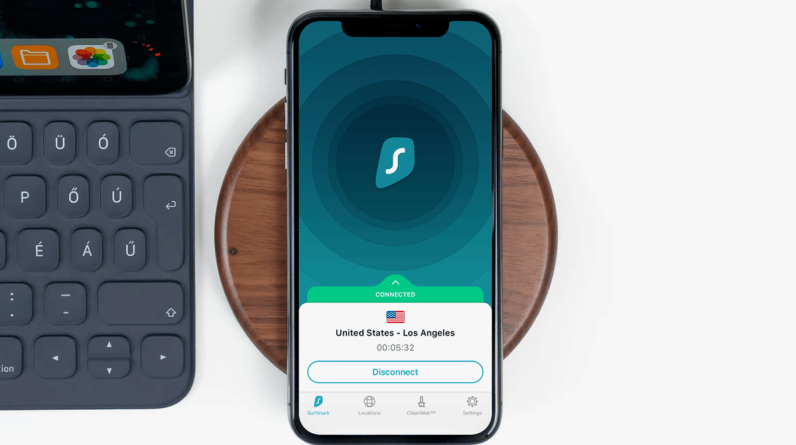
Views: 14
The Future of SEO: Adapting to a World Where ChatGPT Replaces Search Engines
Search Engine Optimization (SEO) has been the backbone of digital marketing strategies for over two decades. However, the rapid advancement of AI, particularly models like ChatGPT, could revolutionize how we access information online. Imagine a future where traditional search engines like Google and Bing are replaced by AI-driven conversational agents. What would SEO look like in this new world? How would businesses and content creators adapt their strategies to stay relevant and visible?
This blog explores the potential future of SEO in a world where ChatGPT and similar AI models dominate information retrieval. We will delve into the implications for digital marketing, the changes in user behavior, and the strategies businesses might need to adopt to thrive in this new landscape.
Introduction to the Evolution of SEO
The Current State of SEO
SEO involves optimizing web content to rank higher in search engine results pages (SERPs). It encompasses various techniques, including keyword research, on-page optimization, link building, and technical SEO. The primary goal is to increase organic traffic by making content more discoverable to users searching for relevant information.
The Rise of AI and ChatGPT
AI-driven models like ChatGPT have made significant strides in natural language understanding and generation. These models can engage in human-like conversations, providing detailed and contextually relevant answers to user queries. As these models continue to improve, they could potentially offer a more personalized and efficient alternative to traditional search engines.
The Shift from Search Engines to AI Conversational Agents
How ChatGPT Could Replace Search Engines
1. Instant, Personalized Responses: ChatGPT can deliver immediate, personalized responses to user queries, reducing the need for users to sift through multiple search results.
2. Contextual Understanding: AI models can understand the context of a query better than search engines, offering more precise and relevant answers.
3. Integration with Daily Life: AI can be integrated into various devices and platforms, from smartphones to smart home devices, making information retrieval seamless and ubiquitous.
Implications for User Behavior
1. Reduced Reliance on SERPs: Users may no longer need to browse through search results, leading to a significant reduction in website traffic from traditional search engines.
2. Higher Expectations for Quality: As users become accustomed to high-quality, immediate answers, the bar for content quality will rise significantly.
3. Increased Use of Voice Search: With AI-driven assistants, voice search is likely to become more prevalent, changing the dynamics of how queries are framed and answered.
Redefining SEO in the Age of AI
New Metrics for Success
1. Engagement Metrics: Metrics such as user engagement, satisfaction, and retention will become more critical than traditional SEO metrics like page views and bounce rates.
2. Direct Traffic and User Retention: The focus will shift towards building a loyal audience that directly visits your platform rather than relying on organic search traffic.
Content Optimization for AI
1. Conversational Tone: Content should be written in a more conversational tone to align with how AI models interact with users.
2. Contextual Relevance: Emphasis on creating content that is contextually rich and can answer specific user queries comprehensively.
3. Structured Data: Using structured data to help AI understand and retrieve information more effectively.
Strategies for Businesses to Adapt
Creating High-Quality, In-Depth Content
1. Expertise and Authority: Focus on creating authoritative content that showcases expertise in your niche. This helps in building trust and credibility with both AI models and users.
2. Comprehensive Guides and Tutorials: In-depth guides and tutorials that cover topics extensively will be more valuable as they provide complete answers to user queries.
Leveraging AI for Content Creation and Optimization
1. AI-Powered Tools: Utilize AI-powered tools for content creation, optimization, and analysis to stay ahead of the competition.
2. Personalization: Use AI to personalize content for different segments of your audience, increasing engagement and satisfaction.
Building a Strong Brand Presence
1. Brand Authority: Invest in building a strong brand presence and authority, as recognized brands are more likely to be trusted and recommended by AI models.
2. Social Proof: Leverage social proof, such as customer reviews and testimonials, to build credibility and trust.
The Role of Technical SEO in the AI Era
Optimizing for Voice Search
1. Natural Language Processing (NLP): Optimize content for NLP by using natural language and answering questions directly.
2. Long-Tail Keywords: Focus on long-tail keywords and phrases that users are likely to use in voice search queries.
Structured Data and Schema Markup
1. Schema Markup: Implement schema markup to help AI understand the content and context of your website better.
2. Rich Snippets: Optimize for rich snippets and other enhanced search features that AI might use to provide answers.
Website Performance and User Experience
1. Fast Loading Times: Ensure your website loads quickly, as user experience will be crucial in retaining visitors.
2. Mobile Optimization: Optimize your website for mobile devices, considering the increasing use of smartphones for AI-assisted searches.
Ethical Considerations and Challenges
Ensuring Data Privacy
1. User Consent: Ensure that user data is collected and used with explicit consent, respecting privacy regulations.
2. Transparency: Be transparent about how user data is used and stored, building trust with your audience.
Combating Misinformation
1. Fact-Checking: Implement rigorous fact-checking processes to ensure the accuracy of the information provided by AI models.
2. Quality Control: Regularly update and review content to maintain high standards of accuracy and relevance.
Addressing Bias in AI
1. Inclusive Content: Create inclusive content that represents diverse perspectives and reduces bias in AI-generated answers.
2. Continuous Monitoring: Monitor AI outputs for bias and make necessary adjustments to ensure fair and balanced information.
Case Studies: Businesses Adapting to the AI-Driven SEO Landscape
Example 1: E-Commerce Platform
1. Personalized Shopping Experience: Using AI to offer personalized product recommendations and enhancing the user shopping experience.
2. AI-Powered Customer Support: Implementing AI-driven chatbots for customer support, providing instant answers to common queries.
Example 2: Content Marketing Agency
1. AI-Driven Content Strategy: Leveraging AI to analyze user data and create targeted content strategies that meet specific audience needs.
2. Real-Time Content Optimization: Using AI tools to optimize content in real-time, improving engagement and performance.
Example 3: Healthcare Provider
1. AI-Assisted Medical Information: Providing reliable and accurate medical information through AI-driven chatbots and virtual assistants.
2. Patient Engagement: Enhancing patient engagement with personalized health tips and reminders via AI-powered platforms.
Preparing for the Future: Actionable Steps for Businesses
Invest in AI Technology
1. AI Tools and Platforms: Invest in AI tools and platforms that can help in content creation, optimization, and analysis.
2. Training and Development: Train your team to effectively use AI technologies and integrate them into your digital marketing strategies.
Focus on User Experience
1. Seamless Interactions: Ensure that user interactions with AI models are seamless and intuitive.
2. Feedback Mechanisms: Implement feedback mechanisms to continuously improve the quality of AI-generated content and user experience.
Stay Informed and Adaptable
1. Industry Trends: Stay informed about the latest trends and developments in AI and SEO.
2. Flexibility: Be prepared to adapt your strategies as the landscape evolves, ensuring that your business remains competitive and relevant.
HoneyBunns: Embracing the Future of SEO in an AI-Driven World
The potential replacement of traditional search engines by AI models like ChatGPT represents a paradigm shift in how we access and interact with information online. For businesses and content creators, this shift presents both challenges and opportunities. By understanding the implications of this change and adapting their strategies accordingly, businesses can not only survive but thrive in this new landscape.
The future of SEO will be characterized by a greater emphasis on content quality, user engagement, and personalized experiences. As AI continues to evolve, staying ahead of the curve will require continuous learning, innovation, and a commitment to providing value to users. By embracing these changes, businesses can position themselves for success in an AI-driven future where search engines as we know them may become a thing of the past.
- AI-driven SEO,
- future of SEO,
- ChatGPT SEO,
- AI in digital marketing,
- SEO strategies for AI,
- optimizing for voice search,
- structured data for AI,
- personalized content, AI,
- conversational AI SEO,
- AI content optimization






